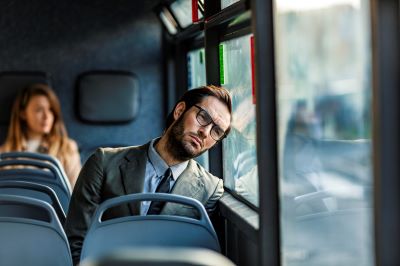Low energy in men can be the result of any number of causes, but most often, some form of hormone imbalance is to blame.
In today’s busy, stressful world, it is not uncommon for men to have a lack of energy. Low energy or chronic fatigue in men can have any number of causes, from lifestyle factors such as poor or disturbed sleep, poor diet, and lack of exercise – to more biological reasons such as low testosterone, thyroid hormone issues, or growth hormone deficiency.
If your lack of energy is indeed caused by a hormonal issue, hormone replacement therapy can raise your energy levels and improve your quality of life.
What Causes Low Energy Levels in Men?
There can be any number of reasons for low energy or chronic fatigue in men. Sleep disturbances, stress, and emotional issues, your diet, and underlying medical conditions can all lead to decreased energy in men.
How Is Poor Diet Related to Low Energy in Men?
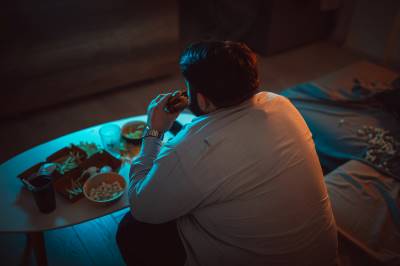
Poor diet and a lack of essential nutrients can definitely play a role in energy loss in men. If you are not getting enough nutrition or even not eating enough calories it can lead to lack of energy. Of course, it is not only how much you eat, but what you eat. High fat foods, junk foods and foods with too much sugar can all slow you down and make you feel sluggish.
In addition, a poor diet can lead to obesity, diabetes, or a number of other metabolic conditions that can all cause low energy.
Generally speaking, eating what is recognized as a “heart healthy diet” – one that is low in fats and rich in whole grains, veggies and lean protein – can help keep your energy levels high.
Low Testosterone and Lack of Energy in Men
It is not uncommon for adult males to feel tired or as if they have little or no energy. Let’s face it, the stress and struggles of everyday life can be exhausting for anyone.
However, feeling continuous or chronic fatigue in men is often the result of an imbalance of one or more critical hormones.
A hormone imbalance in men can relate to having too much or too little of any given hormone. In some cases, as in thyroid hormones, either too much or not enough can influence energy levels. But, when it comes to chronic weakness and lack of energy or stamina in men, it is almost always due to low hormone levels.
This is particularly true of men over the age of 40. Because two hormones that are vital to stamina and energy – testosterone and human growth hormone (HGH) both drop as you age.
Age-related testosterone loss, in particular, can cause many issues that all can contribute to chronic fatigue and lack of energy.
Low testosterone can decrease energy and enthusiasm for life by:
- Lowering your metabolism, causing you to gain weight and feel sluggish.
- Causing disrupted sleep.
- Lower red blood cell production leading to anemia.
- Increasing stress and anxiety.
Growth Hormone Deficiency and Lack of Energy in Men
HGH runs a close second to being as important to keeping energy levels up in men, again in particular in men over 40.
HGH contributes to a man’s energy levels, strength, and overall feeling of well-being for a lot of the same reasons that testosterone does. HGH is vital to many of the identical processes, such as metabolism and sleep.
Like testosterone HGH also plays a role in influencing the production and release of neurotransmitters related to mood, and men with age-related growth hormone deficiency are at greater risk of depression and anxiety, which can also sap your strength and energy.
Sleeping Disorders and Lack of Energy in Men
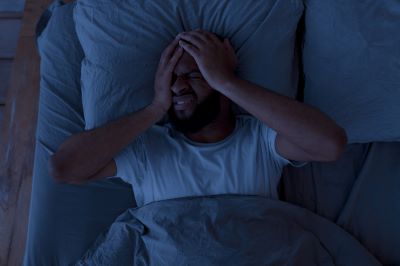 Sleep disorders, and in particular, a condition known as obstructive sleep apnea, can be responsible for low energy or chronic fatigue in men. And interestingly enough, men who have been diagnosed with low testosterone are far more likely to suffer from sleep apnea than men with normal testosterone levels.
Sleep disorders, and in particular, a condition known as obstructive sleep apnea, can be responsible for low energy or chronic fatigue in men. And interestingly enough, men who have been diagnosed with low testosterone are far more likely to suffer from sleep apnea than men with normal testosterone levels.
This is yet another way that low testosterone is linked to a lack of energy in men.
Sleep apnea is a condition where you stop breathing for brief intervals during the night.
The condition is marked by loud snoring, which occurs as the person with sleep apnea gasps for air. Sleep apnea is more common in men than women. It is also more common in men who are overweight.
Studies have shown that the link between obstructive sleep apnea and low testosterone actually goes both ways. Low testosterone can cause sleep disturbance, and sleep disturbance can cause low testosterone. It can become a vicious cycle.
Mood and Emotions & Lack of Energy in Men
Mood and emotional states can also impact a man’s energy levels; depression, in particular, can cause a man to feel like he has no energy.
Depression is common in men, particular older men. Depression literally makes you feel “low” and that includes your energy levels. For men living with depression, feeling too tired to do anything is quite a common occurrence.
Anxiety and stress can also lead to feelings of fatigue and lack of motivation.
Lack of Iron (Anemia) and Energy Levels in Men
Testosterone is an important precursor to the production of red blood cells. Red blood cells carry oxygen from your lungs through the bloodstream to your organs for fuel and energy. You may have heard of anemia and know that one of its main symptoms is extreme fatigue. Anemia occurs when your body is not making enough red blood cells to carry enough oxygen to your vital organs, including to power your muscles, and a lack of strength and weakness is the result.
Research has found that men with low testosterone are as much as five times more likely to suffer from anemia than men with more normal testosterone levels. This is yet another way that age-related testosterone deficiency syndrome robs a man of his energy.
Thyroid Hormone and Lack of Energy in Men
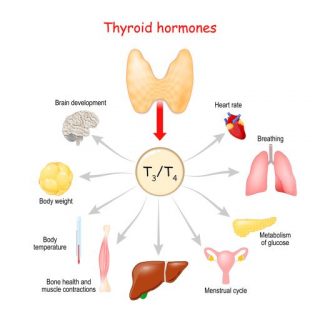 Thyroid hormones are critical for many bodily processes. While thyroid imbalances are more common in women than they are in men, thyroid issues can affect men as well.
Thyroid hormones are critical for many bodily processes. While thyroid imbalances are more common in women than they are in men, thyroid issues can affect men as well.
Unlike testosterone and HGH, which impact a man’s energy when they are too low, thyroid hormones can impact energy levels when they are too high or too low.
When you are not making enough thyroid hormone, a condition known as hypothyroidism, chronic fatigue, and lack of energy is one of the symptoms. This is because the thyroid hormones influence several other hormones that are all related to metabolism and how your body converts the calories in food into energy for your cells.
When you are not making enough thyroid hormone, metabolism slows, leaving you tired and weak. Hypothyroidism also is linked to low testosterone, and as we have already seen, low testosterone can lead to fatigue and weakness in a number of ways.
Thyroid hormones are a funny thing. The opposite condition, hyperthyroidism – or too much thyroid may also cause tiredness and lack of energy in men. This is mainly because of the way that an overactive thyroid can tax the heart, cause sleep issues and raise your blood pressure.
Are There Other Medical Conditions That Can Cause Low Energy in Men?
There are several medical conditions and associated factors that can also cause fatigue. Some medical conditions that can cause low energy and fatigue in men include:
Conditions that can cause fatigue include:
- liver failure
- kidney failure
- heart disease
- cancer
- chronic obstructive pulmonary disease (COPD)
- diabetes
Medications can also cause fatigue, including certain pain medications, heart medications, blood pressure drugs, and some types of antidepressants.
What Are Some Ways to Safely Boost Your Energy?
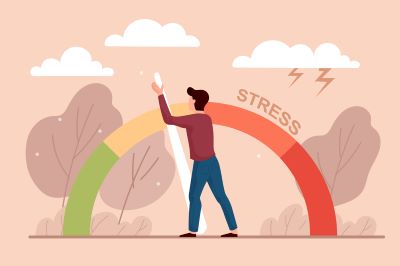 You can increase your energy safely by:
You can increase your energy safely by:
- Improving your diet
- Getting more sleep
- Getting more exercise
- Reducing stress
- Drinking more water
- Reducing the consumption of alcohol
It is not recommended that you try to increase your energy through the use of caffeine, so-called “energy drinks,” or other stimulants.
Is Hormone Replacement the Best and Proper Treatment for Men With Low Energy?
While there can be a number of reasons for chronic fatigue and lack of energy in men, if other conditions have been ruled out and your tiredness is related to age-related hormone decline, hormone replacement therapy can improve your strength and energy.
One of the key benefits of HGH therapy and testosterone replacement therapy for men is that they both increase your ability to build lean muscle. That benefit right there can improve your energy in so many ways.
When you have more muscle, you raise your metabolism. Once you are gaining muscle, your strength will improve, so you will not only have more energy to do day-to-day tasks, you will be able to exercise more and build even more muscle, which in turn will continue to increase your energy.
In addition, HRT for men can improve sleep and improve mood, which will also increase your energy and your overall feelings of wellness. And the many benefits of HRT for men do not stop at simply increasing your energy levels. Hormone replacement can also:
- Improve your sex drive and sexual performance
- Improve memory and cognition
- Help you lose weight
- Improve bone and joint health
- Give you younger-looking skin and thicker hair

